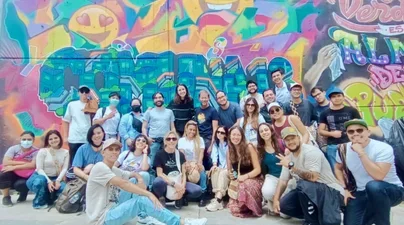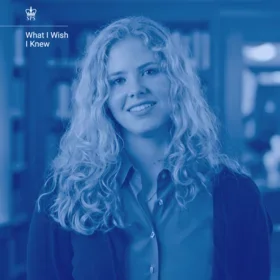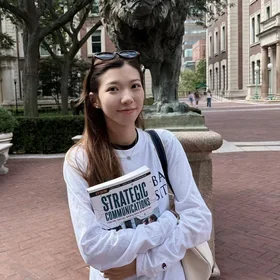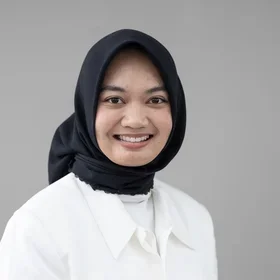Students in the Negotiation and Conflict Resolution (NECR) program at Columbia’s School of Professional Studies are taught how to dive deep into the heart of a conflict, learning how to analyze its impetus and gaining the skills to intervene.
The NECR program offers an array of summer practicums to help students put the theoretical skills they've acquired in the classroom to work in the field. In 2024, students will be able to attend practicums in New York City, Colombia, and Japan, each offering something special to graduate students interested in applying.
NYC Summer Practicum
The "Social Justice and Conflict Resolution: Public Safety in NYC" practicum examines the role of social justice in conflict resolution analysis and practice, using New York City as its laboratory.
This summer’s session, led by Peter Dixon, Associate Professor of Practice, will focus on one of the most challenging questions facing major U.S. cities today: What does safety mean to residents and how can a safe and just environment be created for everyone? The course will cover the historical and theoretical intersections between the fields of social justice and conflict resolution, drawing on conflict analysis and resolution skills to propose concrete public safety policy options and community strategies in three of the city’s neighborhoods: Harlem, Bedford-Stuyvesant, and the South Bronx.
Most people will say that safety is about much more than policing. It is a tangible state of being (Are you at risk of physical violence?) and immediate feeling (Are you comfortable walking alone at night?). Safety is a broad system embedded in a complex network of social relations, formal and informal organizations, and political dynamics. Complex and divergent ideas about what public safety entails has led to a broad array of tensions and conflicts in New York City, particularly in neighborhoods such as the three in this course, where residents often feel both over-policed and under-resourced.
The course will follow active research collecting community-based data around the city under the leadership of Dr. Dixon, who also works closely with Dr. Geraldine Downey and Columbia University's Center for Justice. The aim is to answer two questions: How do residents from communities impacted by violence and policing define safety for themselves? And, what makes these grounded definitions more or less relevant for actual public safety policy?
Colombia Summer Practicum
“Practicum in Peacebuilding: Colombia” will be led by Negotiation and Conflict Resolution Lecturer Joan C. Lopez and Program Director Dr. Beth Fisher-Yoshida. For their book, Peacebuilding in Colombia: From the Lens of Community and Policy, Lopez and Dr. Fisher-Yoshida worked with Colombian community leaders to help change the existing narrative of the region by sharing what they learned about peaceful responses to violent conflicts.
Colombia has had the longest violent internal conflict in the world’s history. During this practicum, the different methods of peacebuilding that have been attempted in the area will be broken down for students, with a focus on creative and community-based nonviolent responses to conflicts. Students in this practicum will learn from “peacebuilding actors,” members of the community responding nonviolently.
The course will move from the classroom to the field in order to see how the community works to build peace. Collectively, the students will assist in planning how to maintain peaceful actions. NECR students will share the classrooms and field visits with students from the master’s program in peacebuilding at Universidad de Los Andes in Bogotá. This connection provides a richer local experience for students, and gives them the opportunity to share knowledge and work in real time with community peacebuilders.

At the “Practicum in Peacebuilding: Colombia,” Negotiation and Conflict Resolution students share classrooms and field visits with students from the master’s program in peacebuilding at Universidad de Los Andes in Bogotá.
Japan Summer Practicum
In Japan, the summer practicum for 2024 will be led by Dr. Josh Fisher, an NECR instructor and the director of the Advanced Consortium on Cooperation, Conflict and Complexity at Columbia University. Titled “Clinic on Conflict and Collaboration in Natural Resource Management: Advancing Positive Peace and the SDGs,” this practicum will explore environmental sustainability through peacebuilding and by implementing Sustainable Development Goals (SDGs), something that aligns closely with Dr. Fisher’s continued research in the field.
This course will be held in partnership with Hiroshima University and will take place on their campus and in the field. Students will have the chance to work with public, private, and civil society groups on environmental management and sustainability. Lectures and select field visits will be accompanied by local experts, peacebuilders, and Hiroshima University faculty.
Last year’s practicum fieldwork included a trek to Setonaikai National Park and visits to the Saijo Sake Brewery, where students observed how water quality is maintained for sake production. This begins with forestry management in the mountains and flows down to Akitsu Bay, where many oyster farms are situated.
“When we think about what’s required for peacebuilding and sustainability, it’s longterm engagement and sustained collaboration. Even when resources are scarce, even when diplomatic challenges are hard, that sustained engagement is critical. As a way of modeling this to the students as well for the partners that invite us in, I am committed to keeping that collaboration active,” Dr. Fisher shared in an interview about the practicum.
A Chance to Put Theory Into Practice
These summer practicums offer intensive experiences that often inform a student’s future. Faith Altman (’15SPS, Negotiation and Conflict Resolution) traveled with Dr. Fisher-Yoshida to Medellin, Colombia, to research the ongoing effects of the country’s violent history of narco-trafficking. While there, she was mesmerized by the city’s youth, who used creative expressions such as street art to make nonviolent statements. It was this firsthand experience that led her to produce a documentary with a Colombian filmmaker, BlackBook Medellin.
The summer practicums are not simply a chance to master fieldwork. They are an opportunity to take skills learned in the NECR program and put them into action.
“I look back now and think that those were some of the greatest times in my life. Being able to talk to people who are directly impacted by these conflicts is incredible,” Altman says. “I think that the connections I’ve made while I was in the program have allowed me to feel like I can now thrive in the field. I don’t consider myself an expert, but I’ve published, and I’m getting requests to review work from people who really are experts in the field. None of this would have happened had I not done the program.”
About the Program
Columbia University’s Master of Science in Negotiation and Conflict Resolution prepares students to analyze the root causes and dynamics of conflict and to transform disputes through reasoned and resourceful interventions. The program focuses on developing self-awareness, tenacity, and interpersonal competency; building common ground; opening lines of communication; ensuring representation and recognition, and building sustainable possibilities for resolution.


